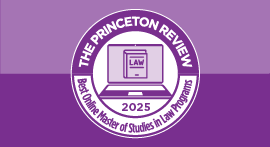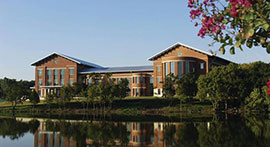Overview
Test Scores
(enrolled students)
Deadlines
Application Process
Other Admission Factors
LSAT Score
Undergraduate GPA
Letters of Recommendation
Essay / Personal Statement
Selectivity Rating
Faculty Information
Students Say
Much of the high tuition at Cornell goes to maintaining the excellence in the faculty. The “rock star” professors here are “amazing” and “truly want every student to succeed and excel.” Some say “the ability to take classes with some of the leading professionals and thinkers in a particular area is one of the best aspects of a Cornell Law education.” “They are like legal celebrities.” Others say that it is “the ease with which graduates can land a big law job in NYC.” “Our career services department made the process both painless and simple, and most students had their summer employment locked down by the beginning of Fall 2011,” according to one student. The rest of Cornell Law School also “runs like a well-oiled machine.” “I have had the opportunity to see my legal writing published in national magazines, and I have been given chances to do things I never thought I could achieve, through the guidance of the staff and faculty at Cornell,” says one student.
Students are required to take thirteen credits per semester, leaving many wishing for “more mandatory pass/fail one credit classes,” since many students are left “scrambling for that extra credit” in the second semester. Still, the focus on the practical experience is what firms are looking for in this economy, and “the clinical classes give students a chance to apply what they've learned to real world problems.” “It's refreshing to have theory classes taught by individuals who also have real-world experience in the field,” says one student. “For example, my Public International Law professor helped to draft the new constitution for Kenya and [has a working relationship] with Kofi Annan.” One huge benefit of the school’s size includes the opportunities to schedule a directed reading or supervised writing. With a directed reading, if a student is interested in taking a course in something that is not currently offered, that student can contact the professor and set up a directed reading or supervised writing to receive credit and study a particular topic.
Though students frequently admit, “Ithaca is a lovely place,” they are also keenly aware that “there aren't the same type of part-time externship opportunities that one would find in New York City, Washington, D.C., or even the smaller cities.” Luckily, networking opportunities and reputation can help compensate, and “just having ‘Cornell’ on your résumé can open certain doors.”
Career overview
Career Services
Graduates Employed by Area
Graduates Employed by Region
Dates
Financial Aid Statistics
Expenses per Academic Year
Student Body Profile
Demographics
Campus Life
Students Say
With construction completed in December 2013, the new wing of Cornell Law School opened in time to host spring 2014 classes. The library is particularly “state-of-the-art.” The campus is “beautiful,” and students often remark, “We attend school in a castle.” This castle is “a very insular community,” and many law students don't venture far off of the hill. The student body is understandably “extremely close.” “I know the names of the majority of my fellow students in my class year,” says one; however, the small population can “create a bubble of stress that can sometimes be hard to overcome.”
More Information
Admissions Office Contact
Director
Ithaca, NY 14853-4901



